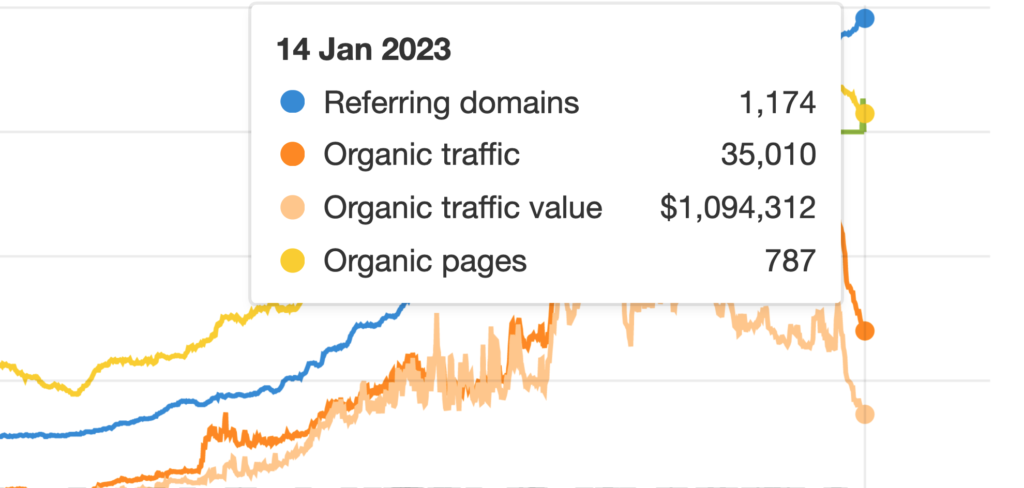Will Google’s MUM Kill Lawyer SEO? Should You Start to Panic?

With every passing day, Google seems to be cooking up something that they state will revolutionize the search engines, but in doing so, they also put website publishers at risk. It’s like turning over a new leaf for many publishers, who have to learn and adapt to newer technologies quickly.
Our team at the Circle of Legal Trust keeps an eye out for such updates so that we can equip our members and readers with the necessary information to help them manage their law firm website’s SEO. Let’s go over the latest update on MUM.
Google MUM Could Revolutionize Search Engines and Affect Search Rankings
Google Search engines are more efficient and effective than other search engines such as Bing, DuckDuckGo, and many others. The MUM update and future plans for improving MUM may revolutionize search engines and how Google generates search engine results.
In the recent Google IO conference, the hosts talked about how the big tech is working on amazing technologies such as an AI Chatbot and Google’s MUM update, among other products. MUM, short for Multitask Unified Model, is similar to previous technology, BERT, that tried to understand searches better or, in other words, enables machines to understand natural language better.
However, MUM is much more powerful than BERT and is looking to take search engines to a whole new level. Well, that’s what Google keeps saying about every product of theirs. So what is MUM, and how can it impact SEO?
What Is Google MUM?
Based on the transformer architecture, MUM is a state-of-the-art language model that looks to improve the existing Google search engine. Google representatives praised MUM and its capabilities, saying that it is 100 times more powerful than its predecessor, BERT, giving a more accurate Google’s search.
Purpose of MUM
In a Google blog by Search Engine Journal, Pandu Nayak explains the purpose of MUM and how it goes about doing that. MUM aims to solve the problem of typing many queries to get a single relevant answer, and it does that by leveraging on power to tackle complex search queries that Google does not have a solution for.
What does all that mean? Say, for example, you are a hiking enthusiast who has hiked Mt. Adams and is eyeing Mt. Fuji for your next hiking adventure. You may have questions about the next hiking expedition that only hiking experts can help answer. You may want to know how you could prepare for the trip and what little differences you should make in your preparation compared to your Mt. Adams hike.
These are some of the questions that Google could not help you answer previously. However, with MUM and the power it leverages, it is now able to do that. MUM will assess the weather, the condition, the time of the year, and other variables in the backend and extract an answer.
In a test run, MUM concluded that the elevation of both mountains is the same, but since it is the rainy season, it could be rainy on Mt. Fuji, and it would be best to pack a waterproof jacket.
How MUM Is Far Superior to BERT
There are several advantages of using MUM over BERT, including the following.
MUM Understands 75 Languages
With its ability to understand 75 languages, MUM is able to break down language barriers and provide better search results.
Let’s take the Mt. Fuji example. If you were to look for relevant information that could help you with your next hiking adventure on Mt. Fuji, you would need to go through content written in Japanese. MUM can quickly scour through Japanese web pages and translate them for you instantly.
MUM Is Capable of Complex Multi-tasking
It is able to understand information much better than its predecessors, leading to a highly sophisticated search engine capable of achieving a lot more.
Again, taking the previous example, MUM could easily comprehend that Mt. Adam and Mt. Fuji are both mountains and that weather conditions are more critical for a hiker than fauna or flora.
Since you’ve already hiked Mt. Adams, it would not suggest you do physical training before your trip but pack accordingly for the Mt. Fuji expedition.
MUM Can Manage Multimodal Information
Something that is beyond GPT-3, a neural network machine learning model, MUM can use information from images and text, and in the future, Google is planning to add videos and audio for information extraction.
Pandu Nayak states that it would be possible for people to take pictures and ask Google relevant queries about it in the future.
For example, a hiker would be able to take a picture of their boots and ask Google whether it would be suitable to hike in those on Mt. Fuji. MUM could quickly run its powerful systems to understand the picture of the boots and the query asked and let you know that it would be fine for hiking on Mt. Fuji.
Such technology is relatively new in the AI world and is a critical step toward revolutionizing search engines in the future.
Can Google’s Mum Kill SEO in the Future?
Since search engines could not understand queries asked by internet users in the past, Google’s algorithm focused on keywords to provide relevant answers to questions.
Google continued to make investments in its search engine to make it feel more natural. BERT was Google’s first attempt to change how Google’s search engine worked by straying away from matching keywords and interpreting the context of words in sentences to provide relevant results. Even if the keywords were missing in a sentence, BERT was able to analyze the webpage answers.
MUM, on the other hand, could change how search engines work, possibly eradicating the concept of search engine optimization.
With the help of MUM, Google will provide information to people without needing to visit pages directly and learn more about their queries. MUM will act as human assistance, talking to people with questions or concerns and addressing them just as a human would.
With such capabilities of understanding natural language, we would not need to focus on keywords but rely on MUM.
Will Keywords Lose Significance?
Pandu Nayak mentioned the importance of keywords in queries, but overall, it would lose significance when it comes to webpage rankings.
Webpage owners or publishers would not have to optimize content for their web pages as MUM would take care of that. It would put an end to all the people who are gaming the system by focusing on keyword stuffing on their websites and web pages to gain ranking.
People would have to stop writing content for Google algorithm but would need to focus their writing on the people instead.
Will Google’s MUM Kill Lawyer SEO: How Does Google’s MUM Affect a Law Firm’s Search Engine Optimization?
Although there are a lot of changes made in the content marketing world, relevant and informative content for law firms will continue to get preference over content that focus on keywords.
Less Reliance on Keywords
When writing a query on the Google search engine, it almost feels like you’re talking to a human person rather than a computer. This is because Google’s search results do not focus on keywords but on relevant and useful content, as explained in their helpful content rollout update.
Incorporation of Audio and Videos
Although Google’s MUM uses content to come up with a calculated answer, in the future, it will also rely on audio and videos to give accurate information to internet users. MUM’s future update may also focus on voice search.
There is a lot of competition in the content writing space, but in future updates, there could be a possibility of law firms introducing audio, videos, and images with helpful content, which could give them a double advantage over others.
Competition in the Search
Currently, your content competes with other content written in a similar language, but in the future, it may compete with the entire world, increasing competition further.
In such situations, law firms can benefit from creating content for their local markets. For example, if a law firm operates in San Diego County, it should optimize its content for that market and focus on the local cities and municipalities.
Focusing on local content can help law firms be successful in their city, locality, and community.
Talk to Circle of Legal Trust
If you’re looking for information on previous updates, Google’s algorithms, or SEO 2022 review under Google’s previous updates, there is a complete guide on Search Engine Land that you can refer to.
However, if you’re looking for help with search engine rankings for your law firm and want to know more, contact us at (888) 494-5015 for a free consultation with our legal SEO digital marketing experts.


